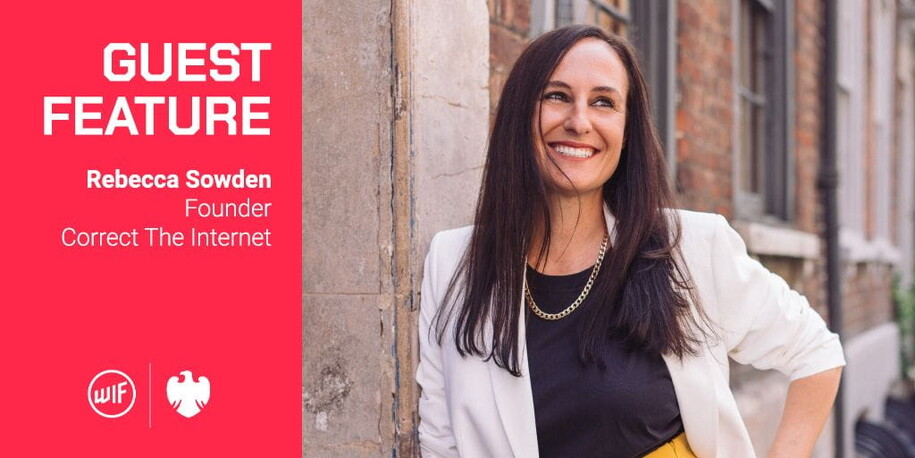News
CORRECT THE INTERNET: TACKLING UNCONSCIOUS ONLINE BIAS AGAINST WOMEN'S SPORT
29 March 2023

If you ask the internet which footballer has scored the most international goals, the search engines will tell you it's Ronaldo. It's actually Canadian women's footballer Christine Sinclair.
In fact there are six other women footballers who have scored more goals than Ronaldo.
This isn't a one-off error or rogue result. If you were to ask the internet which footballer has the most caps for England, it will say it's Peter Shilton when the facts say it's Fara Williams.
As a former New Zealand Football Fern and fierce advocate for women's sport, I first came across this issue when I was searching for match details and information around women's sport online and kept getting served data from the men's formats. It was the weekend of the Grand Finals in women's Australian rules football – the AFLW league. Although I made sure to include the 'W', and despite the men's league being off-season, all my web searches came back with information from the men's competitions.
Of course, I wasn't the only one who had encountered this issue. It seemed to be a common problem across women's sport. So in true women's sport fashion, I teamed up with a number of partners and together we created Correct the Internet, a global campaign to tackle the gender bias that occurs on the internet against female footballers and sportswomen across all codes.
The first partners included creative agency DDB Aotearoa and production company Finch, who made a beautiful hero campaign video. Eden Park, the home of the Rugby World Cup final, offered free use of the stadium to shoot the video. It wasn't long before we had more organisations offering to come on board to help spread the word and get behind the movement. New Zealand Football offered to launch the campaign and play the video in January at the USA v NZ football match – fittingly, at Eden Park. Next it was Sport NZ, Women's Sport Australia, the United Nations, the Lawn Tennis Association (LTA), Women in Football and many many others, including media companies like Alex Morgan's Together, the Female Athlete Project... and each day the list grows.
The problem: the game is being held back
While it may seem like a small error or no biggie to have to enter a 'gender qualifier' in a web search, or look further down the page online, the repercussions reach across the whole ecosystem of women's sport, fuelling a negative cycle.
For our sons and daughters searching the internet for their school project, it tells kids that there aren't the same pathways for our girls as there are for our boys.
For the media, it perpetuates a lack of visibility and coverage, in turn affecting the likes of sponsorship attractiveness.
For the public, it continues a false narrative that women's football is second-tier to men's.
For the future, it puts women footballers and women in general at risk of further being pushed to the background as we see the growing influence of technologies like ChatGPT which draw upon the same incorrect sources of information.
The cause: the historic systems set up for men's football
This issue isn't actually the fault of the technology companies but rather the historic systems that were built for men's sport, with male footballers at the centre and women footballers having to slot in after decades of being held back.
These systems and structures have perpetuated our bias throughout all parts of society. As users and human beings, we have written our own bias into the internet's algorithms, which operate on the assumption that they are providing us with what we want, rather than what is correct.
The goal: it takes a team to win a game
The last few months have been a blur as Correct The Internet has garnered more attention and interest than I could have ever hoped. We've clearly touched on a universal problem which is resonating worldwide.
As well as mainstream media pick-up, a personal highlight for me has been seeing the campaign shared by an icon of sport and equality in Billie Jean King – all off her own bat and with a total campaign budget of $0.
It's been crazy seeing the movement extend across sectors, with a school programme being created where students and teachers can use Correct The Internet as a free resource to help raise awareness around kids but also take action and influence others.
What I've loved most is seeing other parties come on board to support the cause and evolve it to make it their own. The LTA made an entertaining and powerful video using an all-time favourite clip of Andy Murray putting a reporter in his place, and Sky New Zealand created its own bespoke content.
So far, we've had tens of thousands of corrections made online at www.correcttheinternet.com, where each of you can play a part by simply heading online and following a few easy steps to provide feedback to the search engines and help give sportswomen the recognition they deserve and increase the visibility of women's sport.
For me the united and collective voice of the women's sport community is what has made this campaign such a success and is something that we need to continue to leverage as a community to create change more quickly.
So let's all play our part and get correcting, so that when Canada kick off their first game at the FIFA Women's World Cup this year and Christine Sinclair adds to her impressive goal tally, she is given the recognition and visibility she has earned.
Let's go!
Rebecca Sowden is a member of Women in Football, which is a proud partner of Correct the Internet
Share this article
